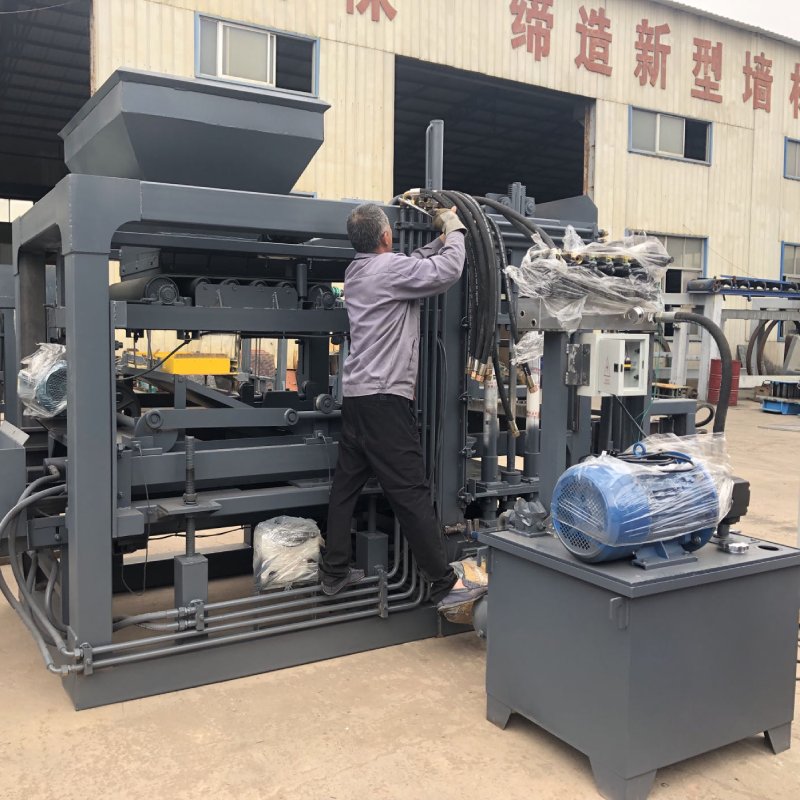
Image source Aiwei Block Machine
Sustainability in Brick and Block Manufacturing: Industry Leaders and Practices
Introduction
The construction industry is undergoing a profound transformation driven by a growing awareness of environmental concerns and the imperative to build sustainably. One critical aspect of this transformation is sustainability in brick and block manufacturing. These basic building materials are the foundation of countless structures worldwide, and making their production more sustainable has far-reaching implications. In this comprehensive 4,000-word article, we will delve into the world of sustainability in brick and block manufacturing, exploring the practices, innovations, and industry leaders driving positive change in construction.
Chapter 1: The Importance of Sustainable Brick and Block Manufacturing
Section 1.1: The Environmental Impact of Traditional Practices
To set the stage, we’ll explore the environmental impact of conventional brick and block manufacturing practices. This includes resource depletion, energy consumption, and greenhouse gas emissions.
Section 1.2: The Rise of Sustainable Building Practices*
Understand the factors driving the adoption of sustainable building practices, including regulatory changes, consumer demand, and a desire to reduce the construction industry’s ecological footprint.
Chapter 2: Leading Manufacturers in Sustainable Brick and Block Production
Section 2.1: Besser Company’s Sustainability Initiatives*
Explore how Besser Company, a global leader in concrete product manufacturing solutions, is implementing sustainable practices and innovation in their brick and block production.
Section 2.2: Rekers GmbH’s Commitment to Eco-Friendly Manufacturing*
Germany-based Rekers GmbH is renowned for its cutting-edge block making machinery. Learn about their dedication to eco-friendly manufacturing and sustainable solutions.
Section 2.3: Masa GmbH’s Sustainability Journey*
Masa GmbH, with a century-long legacy, is known for precision and reliability. Discover how they are reducing their environmental impact while delivering high-quality brick and block production solutions.
Section 2.4: Hess Group’s Green Initiatives*
The Hess Group offers turnkey solutions for concrete product manufacturing. Explore how their sustainability initiatives are influencing the industry and promoting eco-friendly practices.
Section 2.5: Quadra’s Innovations in Sustainable Brick and Block Production*
France-based Quadra is recognized for its versatile and high-quality machinery. Delve into their sustainability practices, including automation and digital solutions that streamline eco-friendly production.
Chapter 3: Sustainable Materials and Practices
Section 3.1: Sustainable Raw Materials for Brick and Block Production*
Explore the use of sustainable raw materials in brick and block manufacturing, including recycled aggregates, alternative binders, and eco-friendly additives.
Section 3.2: Energy-Efficient Production Processes*
Learn how manufacturers are optimizing energy use in brick and block production through efficient machinery, renewable energy sources, and heat recovery systems.
Section 3.3: Waste Reduction and Recycling*
Discover how waste reduction and recycling practices are reducing the environmental impact of brick and block manufacturing, from reducing waste at production facilities to repurposing materials.
Chapter 4: Sustainable Design and Innovation
Section 4.1: Customization and Design for Sustainability*
Explore how sustainable design practices are integrated into brick and block manufacturing, including customization options for energy-efficient and environmentally friendly buildings.
Section 4.2: Architectural and Decorative Sustainability Elements*
Delve into the production of specialized architectural and decorative elements that enhance the aesthetics of eco-friendly structures, including green building certifications.
Chapter 5: Industry Impact and Future Prospects
Section 5.1: The Environmental Impact of Sustainable Brick and Block Manufacturing*
Understand the tangible environmental benefits of sustainable brick and block production, including reduced carbon emissions, resource conservation, and improved air quality.
Section 5.2: Future Trends and Prospects for Sustainability*
Explore emerging trends, technologies, and practices in sustainable brick and block manufacturing, including the role of automation, circular economy principles, and the integration of advanced materials.
Chapter 6: Case Studies in Sustainable Brick and Block Projects
Section 6.1: Sustainable Residential Construction*
Examine case studies of sustainable residential construction projects that have prioritized eco-friendly brick and block materials and practices.
Section 6.2: Sustainable Commercial and Industrial Projects*
Explore how sustainable brick and block manufacturing is making its mark in commercial and industrial construction, with examples of green buildings and innovative sustainable designs.
Conclusion
As we conclude our exploration of sustainability in brick and block manufacturing, it’s evident that the industry is undergoing a transformation toward more eco-friendly and resource-efficient practices. Leading manufacturers like Besser Company, Rekers GmbH, Masa GmbH, Hess Group, and Quadra are pioneering this change through innovation, sustainable materials, and eco-conscious processes. The future of construction hinges on sustainable practices, and as these practices become more widespread, our buildings will not only be structurally sound but also environmentally responsible, contributing to a more sustainable and resilient world.
